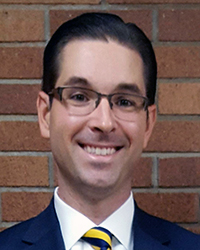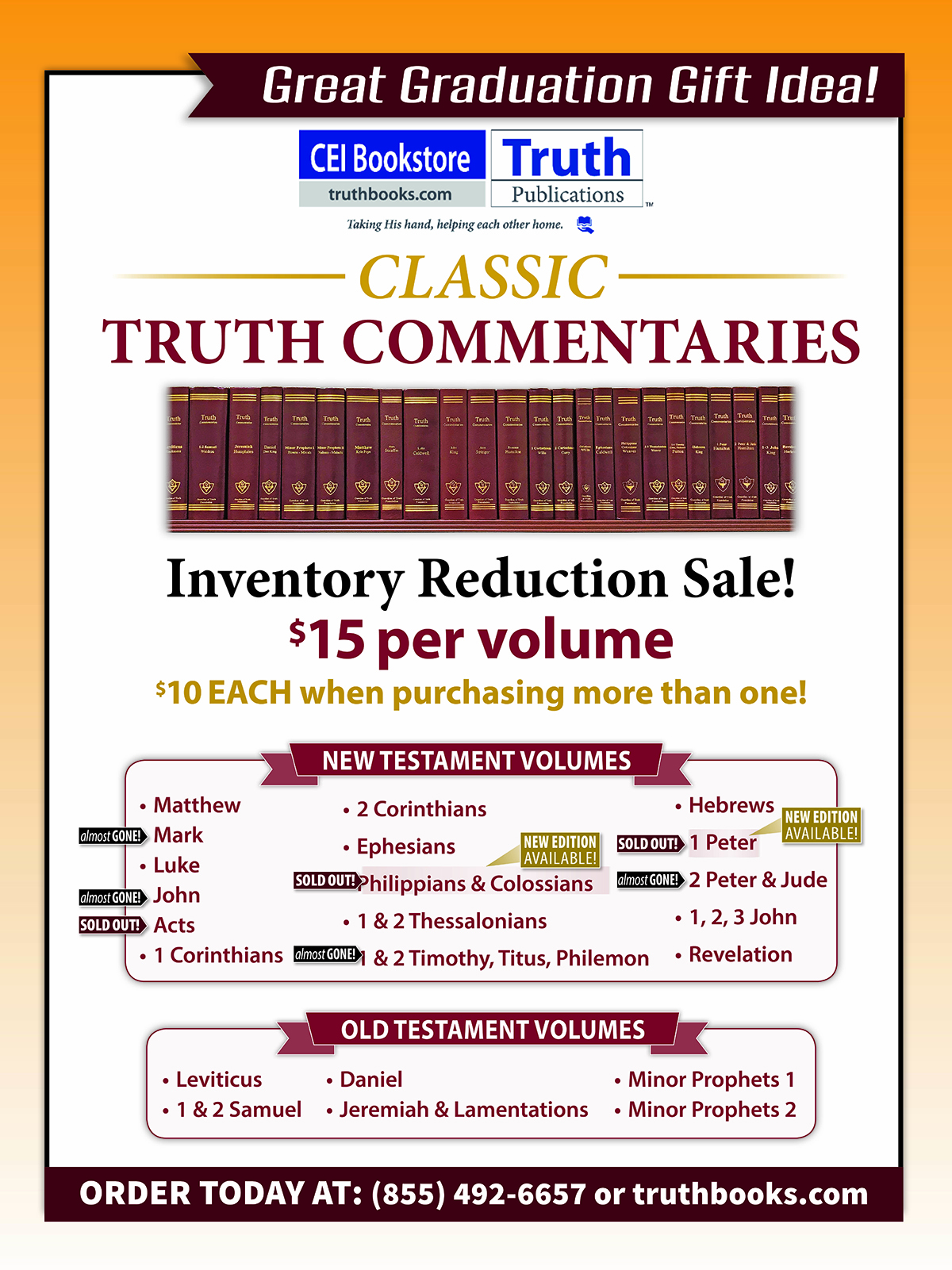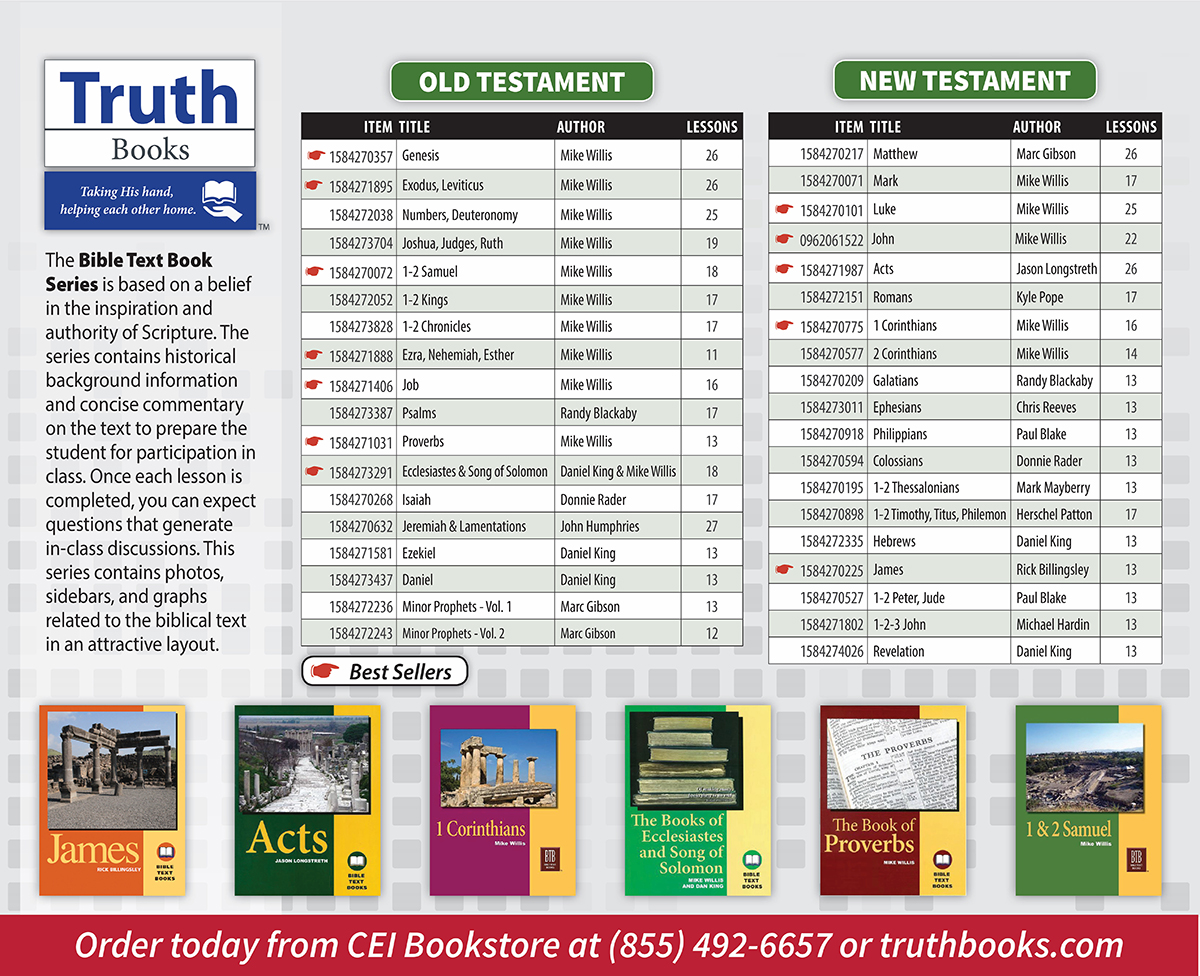

by David Flatt
Synopsis: We are creatures of choice who will be held accountable for our decisions. Accordingly, let us heed the admonition of Jesus in choosing the strait gate and the narrow way.
Enter ye in at the strait gate: for wide is the gate, and broad is the way, that leadeth to destruction, and many there be which go in thereat: Because strait is the gate, and narrow is the way, which leadeth unto life, and few there be that find it (Matt. 7:13-14, KJV).
The opening words of any sermon are critical. Preachers will either gain or lose the interest of their audience. Jesus most certainly captured the curiosity of His audience in speaking the strange line, "Blessed are the poor in spirit…" (Matt. 5:3). As He continued preaching, Jesus drew people in by challenging them to do something as unheard of as "Love your enemies" (Matt. 5:44). He also told them not to worry about life and to treat others how they would want to be treated (Matt. 6:25; 7:12).
Now, Jesus comes to His closing remarks. Conclusions are as important as introductions. After offering one shocking command after the next, the Lord tells His audience what they must do with His message. They must make a choice.
Making choices in life is often complicated. We approach major life decisions by weighing potential consequences. Sometimes we nearly drive ourselves crazy weighing our options. In spite of our planning, there are unforeseen and unintended consequences. There are some things which no careful calculation can predict.
Surprisingly, Jesus narrows our choices to just two options. This sermon is an excellent example of His ability to simplify what we often perceive as complicated. Our Lord plainly states there are but two distinctly different paths in life we can choose to travel, leading in two different directions and having two different destinations. Yet, we must choose one or the other; there is no other alternative.
Jesus tells His audience to come to the kingdom through the strait gate. This sounds simple enough; however, Jesus describes the difficulty of choosing the straight gate. This is made difficult due to the temptation of the other path.
Jesus says there is a broad path. This road does not restrict one from swerving left to right. Regarding similar teaching, Jesus warned about the challenges the rich have in coming to the kingdom. He said,
Truly, I say to you, only with difficulty will a rich person enter the kingdom of heaven. Again I tell you, it is easier for a camel to go through the eye of a needle than for a rich person to enter the kingdom of God (Matt. 19:23-24).
For a large caravan to enter the gate of the city, people would have to unload their camels. While there were large city gates, the gates had smaller, narrower doors which would be opened for people entering the city. Jesus uses this symbolism to describe the unloading and sacrificing of selfishness required for the rich to come to His kingdom. He seems to be making a similar point in the Sermon on the Mount.
People traveling the broad path do not surrender selfishness. They do not give up the vain pursuit of satisfying lustful desires. The wide road does not require sacrifice, but the narrow road does. Sacrifice is not a challenge unique to the rich. This is a challenge for everyone. The Bible says, "Lay aside every weight and the sin which doth so easily beset us, and let us run with patience the race that is set before us" (Heb. 12:1). Few are willing to sacrifice sin so that they might enter the kingdom.
Additionally, choosing a path to travel in life can be difficult due to popularity. Many choose the broad path in life. We tend to find security in large groups. The popularity of a possible option often becomes the justification for the choices we make in life. Our society frequently functions by popular vote, i.e., majority rule. Justice, morality, and ethics are often decided through the democratic process. Jesus is warning about the dangers of the majority. He taught, "Many are called, but few are chosen" (Matt. 22:14). Majority opinion and behavior is not the method for determining what God does and does not approve. We must be cautious regarding superficial methods of evaluation, such as popularity.
What do these pathways look like today? What are some of the attitudes, behaviors, and worldviews we might find on the wide road? First, the broad way is filled with materialistic individuals whose sense of purpose and value comes from their possessions. In this sermon, Jesus has already warned about the dangers of being materialistic (Matt. 6:19-24). God does not measure us based on our possessions but by the character of our heart (1 Sam. 16:7).
Second, the broad road is filled with people who have a skewed view of the family. Today, our corrupt culture is redefining family. In the beginning, God established marriage between a man and a woman as being the foundation for the family. Adam and Eve brought children into the world through this relationship (Gen. 1:26-28). Today, marriage is being redefined. Instead of this relationship consisting of one man and one woman, marriage is offered to members of the same sex. While homosexuality is a minority practice, acceptance of homosexuality is common.
Additionally, marriage itself is declining. Without citing all the detailed research, according to the Centers for Disease Control's "National Center for Health Statistics," a majority of married couples today have cohabitated in the past. An estimated range as high as 70% of adults today will cohabitate before marriage. Many are delaying marriage and family life to pursue college and careers. In the meantime, many will live with a boyfriend or girlfriend outside of marriage. For my children's generation, they will be expected to cohabitate before marriage. If they do not, they will be in the minority at best and considered unwise at worst. Yes, young people are going to be pressured in choosing which road to travel.
Third, the broad path is filled with unbelievers. Fewer people today believe in the existence of God. Even among those who claim to be "Christians," a growing percentage reject any teaching relating to the supernatural. For them, the Scriptures are considered uninspired, miracles were not real, and Jesus was not raised from the dead. Each of these beliefs can be traced back to a rejection of the Genesis account of Creation.
Today, many traveling the broad path have an evolutionary worldview. While some have outrightly rejected the existence of God, others have tried to incorporate evolution into the biblical account of Creation. This is becoming the de facto position of people claiming to be "Christians." However, altering the Genesis account of Creation leads to other problems. This inconsistent interpretive approach to the Bible leads people to reject whatever teaching they do not find scientifically or socially palatable. This is why many reject biblical teachings regarding inspiration, miracles, morality, and the resurrection. For those holding this worldview, the Bible becomes a mythical novel containing some good advice.
What kinds of attitudes, behaviors, and worldviews might we find on the narrow road? First, we find sinners. We see the poor in spirit. We see people humbly seeking the mercy of God. The narrow road is often misrepresented as a path for the perfect. Hardly! The narrow road is only for the brokenhearted (Ps. 34:18).
Second, faith is found on the narrow road. Those who travel this path trust Jesus to lead them to eternal life. They believe the historical account of Creation documented in Genesis. They believe the evidence of the resurrection presented by eyewitnesses like the apostle Paul (1 Cor. 15). Those on the narrow road believe and obey the gospel (Eph. 1:13). When temptation, adversity, and uncertainty swirl around those on the narrow road, they rely on the hope of their resurrected Savior (Rom. 8).
Third, help is on the narrow road. While fewer choose to travel it, they will find fellow travelers. We will find people who are poor in spirit and faithful. We will find people who share a common love for Jesus and His kingdom. We will find those who will encourage us when we struggle. This road may be the road less traveled; yet, we will never be alone (Heb. 13:5).
The two roads identified by Jesus have different destinations. Jesus said the broad road leads to destruction. The lives of many today are being destroyed by idolatry. Such idolatry finds expression through specific acts of sin. Instead of serving the Creator, they are covetous, vainly serving lust and pride, and thus bring pain into their lives as well as the lives of others.
For some, they do not feel pain. They have misused their minds, and their hearts have gone dark (Rom. 1:21). They have become hardened to the shame and suffering of sin (Eph. 4:17-19). They see no reason to change direction in their life. Many today are living in this dangerous condition. As far as they are concerned, life is good, and there is no reason to change anything. Everyone they know thinks and lives just like them. In reality, whether people feel the pain of their sin or not, they are a signpost pointing toward eternal destruction.
Thankfully, our lives do not have to end in destruction. God sent us Jesus, our Savior. Comparing Himself to a good shepherd, Jesus described how He can give us a good life. He said, "I am the door. If anyone enters by me, he will be saved and will go in and out and find pasture. The thief comes only to steal and kill and destroy. I came that they may have life and have it abundantly" (John 10:9-10).
Jesus offers us a new life, providing us with the life that He originally intended us to live. This is a life which seeks to experience God's goodness. It seeks to avoid all that is painful and poisonous to the human experience. The abundant life that Jesus offers reflects the glory of God. This bright, hopeful life that invites others to share in His glory (Matt. 5:16; Phil. 2:12-16).
Sometimes, when presented with choices in life, we are indecisive and never move beyond the evaluation process. This is often done to avoid making a choice. We cannot do this with Jesus. There is no middle ground with Him. If indecision is our choice, by default, we find ourselves on the broad road.
When the Lord returns, there will only be two outcomes for the vast sea of humanity. The apostle Paul described these two outcomes when he wrote the saints at Thessalonica:
This is evidence of the righteous judgment of God, that you may be considered worthy of the kingdom of God, for which you are also suffering—since indeed God considers it just to repay with affliction those who afflict you, and to grant relief to you who are afflicted as well as to us, when the Lord Jesus is revealed from heaven with his mighty angels in flaming fire, inflicting vengeance on those who do not know God and on those who do not obey the gospel of our Lord Jesus. They will suffer the punishment of eternal destruction, away from the presence of the Lord and from the glory of his might, when he comes on that day to be glorified in his saints, and to be marveled at among all who have believed, because our testimony to you was believed. To this end we always pray for you, that our God may make you worthy of his calling and may fulfill every resolve for good and every work of faith by his power, so that the name of our Lord Jesus may be glorified in you, and you in him, according to the grace of our God and the Lord Jesus Christ (2 Thess. 1:5-12).
When Christ returns, we will either suffer eternal destruction or share in His glorious victory. The end that we experience will be the result of the road we chose to travel in life. To which future is your life pointing? Which road will you choose?
Author Bio: David and his family have labored with the Thayer Street congregation in Akron, Ohio since 2008. The church website is thayerstreetcoc.org. He can be reached at dflatt85@yahoo.com.

